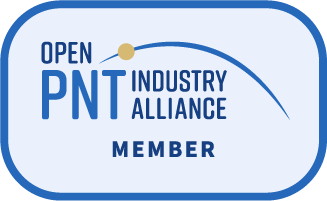
When President Bill Clinton ordered the end of “selective availability” from the Global Positioning System (GPS) in May 2000, he unleashed a new wave of innovation. With access to more accurate data for position, navigation, and timing (PNT), a new generation of location apps was born. Those location apps fueled a whole new segment of the economy. GPS turned into the essential service we know today, paving the way for turn-by-turn navigation, timing for critical infrastructure, autonomous vehicles, and more.
Twenty years later, we’re reaching another inflection point in the history of location technology. The wave of innovation unleashed through GPS is starting to crest. The availability, security, and overall resilience of GPS is increasingly inadequate to serve the needs of the future.
GPS has served us well, and will continue to be the primary PNT solution for decades to come. Yet an emerging set of use cases and technologies require something more robust and secure.
There is a growing recognition in the US government that additional technologies are needed to increase the resilience, security, and availability of PNT services. In February 2020, Executive Order 13905 asked Federal agencies to create use case “profiles” – the first step in enabling the market for resilient PNT. In April 2020, the Department of Homeland Security released a wide-ranging analysis of alternatives to GPS, including ground based systems. The report also reviewed potential policy actions to drive the deployment and adoption of new technologies.
Charting the future of PNT
Government regulation and funding turned those first 24 satellites into a global utility that drives economic growth. Now we have an opportunity to define the next generation of location services and drive a new wave of economic activity.
For alternate PNT systems to effectively compete with the free service offered by GPS satellites, they need a level playing field. That means establishing regulatory frameworks and self-sustaining funding models to ensure cost-effective solutions for critical infrastructure. This is a challenging task – one that requires industry and government to work together.
As noted in the DHS report, the range of use cases for PNT is broad enough that multiple solutions will be needed. This not only helps to maintain a healthy market, but also ensures greater resilience and prevents us from relying too much on a single point of failure.
Introducing the Open PNT Alliance
To promote this multi-technology approach to the future of PNT, NextNav and members of the alternate PNT community came together to form the Open PNT Industry Alliance. The Alliance’s mission is to promote a multi-technology approach to GPS alternatives. This will harness the collective brainpower of industry to protect GPS (and the broader Global Navigation Satellite System, GNSS). The goal is to produce solutions that are technologically advanced, commercially viable, and based on a sustainable long-term funding framework.

Through policy advocacy, education, and information sharing, the Alliance will promote a common understanding of the challenges facing providers of GPS alternatives. It will also promote appropriate policies and sustainable funding models to ensure the long term future of these technologies. The United States and European Union governments created a thriving market for location services by opening up GPS signals to everyone. They now have the opportunity to expand that market by building a framework for future innovation.
The Open PNT Industry Alliance is a diverse group, representing a wide range of technologies and approaches. We believe the time for alternate PNT technologies has come, and we are committed to building a future where everyone can benefit from it. We’re building a broad-based coalition to ensure that the future of PNT isn’t restricted by narrow regulation or starved by lack of funding.
Learn more about the Open PNT Industry Alliance and its upcoming events.